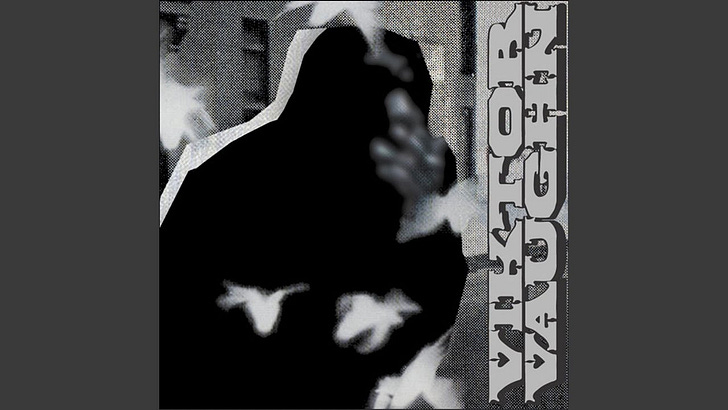I want to take a moment to talk about MF DOOM. According to his family the rapper born Daniel Dumile passed away on October 31st at the age of 49. The world did not learn this fact until New Year’s Eve. True to a public life full of obfuscation, multiple personas, “imposters” that would perform under DOOM’s name, and deliberately inscrutable lyricism, we only knew about DOOM’s passing on his own terms.
Normally I try to avoid writing obituary-esque pieces. It feels tacky when a bozo like me who has no personal relationship with the deceased leaps to his keyboard to spill croc tears for clicks. My attitude is to give people their space to feel what they have to feel and keep it moving. There’s nothing I loathe more than stumbling into someone’s privacy. If there’s something I’ve got to say, I’ll save it for when people have had a chance to catch their breath.
Because of how news of MF DOOM’s last days reached us, I feel more license to comment on his body of work. Moreover, I feel compelled to think about his work at some length because I had, foolishly, taken it for granted in recent years. My ears had been deadened by the reduction of his discography to Madvillainy’s tokenized inclusion in “internet music nerd shit” along with Radiohead, My Bloody Valentine, etc. In the last few years it seemed like there was a growing sentiment that DOOM’s music was no-fun, meant for snobs with a fetishistic attitude about samples and bars. Despite on a conscious level knowing better this association struck too close to home about my own hipster tendencies and without thinking about it his albums shifted out of my rotation.
In my last letter I mentioned that my physical CD collection only represented one wing of the music that I listened to in high school and college. The other wing was my illicit file sharing collection (download a car? Yeah, sure!), which skewed much more into electronic music, hip-hop, and other “non-guitar” genres. I don’t remember what series of forum posts and Mediafire links led me to it, but one of my favorites from those downloads was Vaudeville Villain, an album that MF DOOM released under the name Viktor Vaughn during a prolific stretch in 2003-2005.
Vaudeville Villain has a lot to offer a curious listener still getting over rockist hangups. No matter the name he operated under, DOOM filled his music and lyrics with references to a constellation of pop culture ephemera. Listening to DOOM, you got the sense that he spent a lot of time watching and listening to television. Everything he picked up, from characters and titles all the way down to sound effects and snippets of dialogue, tumbled across his tracks like pieces of a jigsaw puzzle. If someone unfamiliar with the conventions of hip-hop listened to a MF DOOM record they might still be able to follow along if they were savvy about Marvel comics lore or watched enough Adult Swim. As you can imagine, DOOM won over a lot of dorky/media saturated white dudes like me because of this.
However, reducing MF DOOM’s music to a parade of references would be a mistake for two reasons. First, despite his reputation for being difficult to follow MF DOOM also used a lot of deceptively simple language. The man never met an idiom that he couldn’t use to nefarious ends. Part of DOOM’s genius was his way of taking extremely common turns of phrase and twisting them into new shapes. DOOM could rhyme a sentence you’d heard your whole life with a sequence of lines that mirrored the rhythm of the original but completely changed the meaning. It was like he was folding two corners of the dictionary into a loop so that the meaning of one end would slide across to the other. This quality was infectious too. Listen to enough DOOM and you’ll spend the rest of the day hearing words in his cadence, each of your stray thoughts a launching pad for new associations.
Second, focusing on the language itself overlooks what DOOM used that language to do. He didn’t rap about the pop culture he referenced, he used it as code. I don’t mean to suggest this in a Rap Genius sense, that his lyrics couldn’t possibly be enjoyed without some soul sucking decoding process that would make it legible to suburban teens. What I mean is that hearing a direct meaning behind a layer of surprising language is part of the joy of listening to DOOM. He could be funny, describing his sexual exploits and lyrical skills in absurdist flourishes I can’t picture anyone else coming up with. He applied the same wit to grimier subjects, where his sense of humor only sharpened his depiction of police brutality or the less glamorous side of the drug hustle.
Each of these modes lives alongside each other in DOOM’s writing. Instead of clashing, these disparate tones coalesce into a single worldview. Although I would imagine there’s a lot about DOOM’s personal life that never made it into his music, the DOOM you can still hear on record feels like an entire human being capable of cracking jokes even when shouldering the weight of grief. Of course there are parts of that personality that aren’t always a blast to be around, there’s some casual homophobic language in his work that makes me wince, but he’s hardly the worst offender on that count from his era. Even if he was playing a character he was never a caricature. I was wrong to think of it as such, but it’s a mistake I’m happy to correct by revisiting his work more often.
----
For a more comprehensive look at DOOM’s career, I’d recommend this oral history on Vulture.



